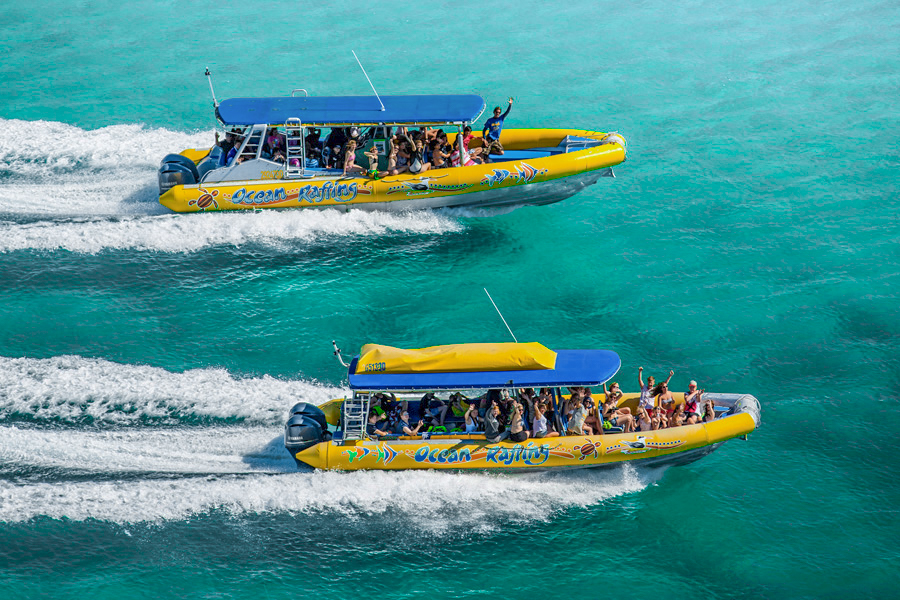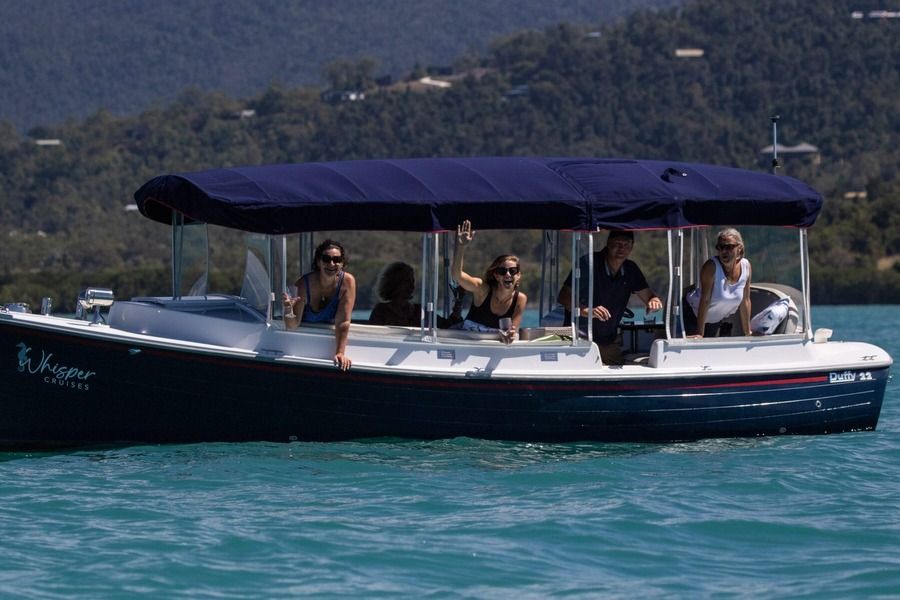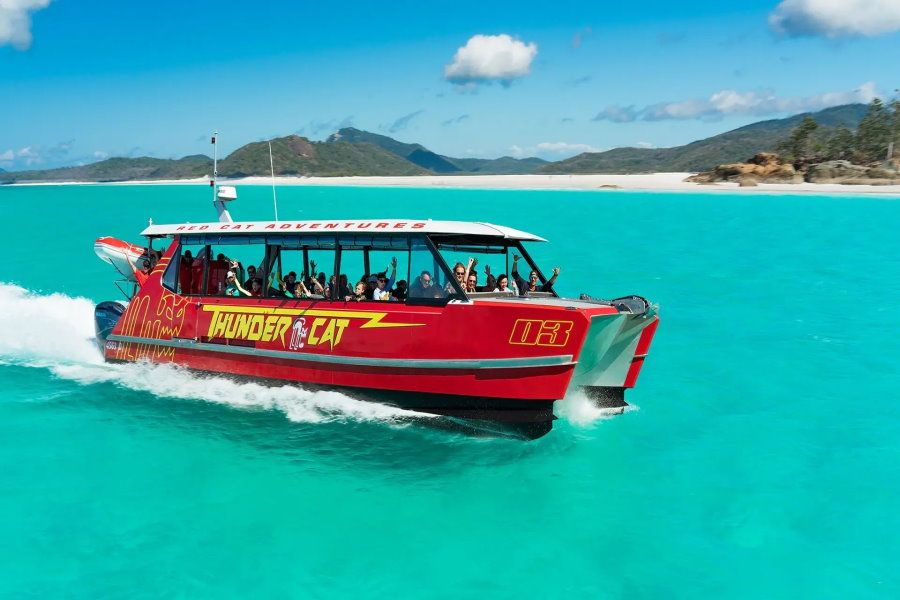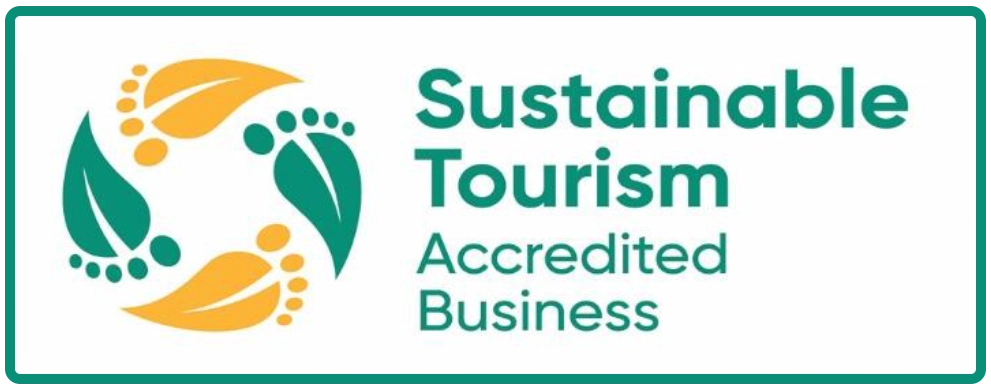How To Travel Plastic Free
It's no secret that plastic is a problem. We're all aware of how it floods our waterways, landfills and oceans, harms wildlife and generally hurts our planet, but sometimes using it can be unavoidable. Still, there are lots of simple ways to avoid or cut down on plastic use that can significantly reduce your carbon footprint while you travel. Read on for some mind-boggling facts about plastic, as well as some tips to cut down on your consumption.

Facts about plastic waste
If you haven't thought much before about making an effort to reduce your plastic consumption and waste, it's worth taking some time to read up about it - some facts might surprise you! Every little effort makes a difference in the effort to protect our beautiful Whitsunday region - and our planet as whole!
- 73% of beach litter worldwide is made up of plastics: Have you ever been to a beautiful beach in an exotic place and its shores are littered with garbage? According to National Geographic, a whopping 73% of that is made up of plastic, including bottles, food wrappers, cigarette butts, buckets, lighters, sandals, rope, and fishing gear.
- Around one million seabirds every year: Seabirds directly consume plastic or they consume fish that have consumed plastics, which then settles in their stomachs and kills them. According to WWF Australia, this is currently killing around one million seabirds and around 100,000 marine animals each year.
- We consume plastic all the time without knowing it: Plastic never fully decomposes. It just gets smaller and smaller, turning into something called microplastic. Today, microplastics can be found in everything from the food we eat to the air we breathe to the cosmetics we put on our skin. In fact, some scientists theorise that the average person might consume 5 grams of microplastics in one week - that's about the weight of a credit card.
- Plastic production has doubled in the past 50 years: While we like to think we’ve become more progressive over time, we have not in regards to our plastic use. Plastic overtakes landfills and contributes to pollution and waste all over the world way more than it ever has.
- More than half the plastic we use is single-use: We are producing about 380 million tonnes of plastic each year and, according to Plastic Oceans International, 50% of that is single-use - things like plastic bags, takeaway containers and straws.
- More than 1 million plastic bags are used every minute around the world: If 1 million bags are used every minute globally, then that means there are potentially over a billion plastic bags used all over the world on a daily basis. That's a lot of plastic that could easily be avoided.
- Every piece of plastic ever made still exists: Aside from the small amount of plastic that has been incinerated, every single piece ever made still exists in some way. Even if it’s broken down and seemingly disappeared, it still exists, scattered all over the world as microplastics.
- 10 million straws are used daily in Australia: It’s said that there is an average of 10 million plastic straws used in Australia on a daily basis.

Tips to travelling plastic-free
Facts about plastic consumption and waste and be quite confronting. If you're suddenly feeling more interested in cutting down on your plastic use, we've compiled a list of easy ways you can help wherever you go.
Use shampoo bars
Shampoo and conditioner bars are paving the way to a plastic-free life. They are small, compact, eco-friendly, and they even give you more washes than a traditional shampoo bottle! Use them at home or pack them with your toiletries when you travel. You can purchase a metal tin to put them in for travel, making them a great addition to your travel kit.
Avoid single-use plastic
Think plastic bags, straws, takeaway containers, disposable cutlery, cellophane, plastic cups, water bottles, produce bags, etc. Every single type of single-use plastic is replaceable with something that is reusable and eco-friendly. Say 'no' to the plastic bag or forgo the straw - this minor change can make a lasting impact on the world and the waste that goes into it.
Bring a water bottle with you to refill
Bottled water is a big contributor to global waste. Australia is a hot country, and people need to stay hydrated, which is why bottled water is such a problem here. So why not bring your own bottle? By carrying a reusable water bottle, you can cut down on your own plastic consumption in a big way.
Choose to reuse
There is a reusable option for almost everything out there. Opt for a reusable bag at the store, pack your lunch in reusable plastic containers, the list goes on. Always choose reusable when you can and cut down on the use of disposable plastic items.
Bring your own straw
Since so many single-use plastic straws are used daily, you can help get this number down by bringing your own straw! You can purchase reusable metal straws from stores all over Australia (even in Airlie Beach!) that can be used over and over again.
Avoid fast fashion
If you have travel coming up and are purchasing new clothes for the occasion, do some research into the brand first. Opt for brands that use sustainable fabrics and avoid the use of plastic.
Pick up rubbish
Picking up rubbish on your travels may not seem like the best use of time, but it makes a big difference to the world around you. If you’ve travelled to a beautiful place that you love, you would not want to see it covered in rubbish. Every little bit makes a difference and you will walk away feeling great while the world around you looks a little better!
Check out these eco-certified Whitsunday tours!
Items to avoid
We’ve made a list of things you can avoid on a daily basis that will cut down on your plastic usage while you’re travelling through the Whitsundays.
- Produce bags - if you plan on grocery shopping while you're here, opt to not use the produce bag. They are unnecessary and are thrown away as soon as you get back to your hotel or hostel.
- Toiletries - While toiletries are important, try to avoid purchasing products that have plastic. Opt for a bar of soap over body wash, and grab some shampoo bars over bottled shampoo.
- Plastic bags and straws - Bring along reusable straws and bags wherever you go so you’re prepared!
- Chewing gum - Opt for mints over chewing gum. Most gum is made with plastic - which is not the only kind of gross, but also not sustainable or good for the planet.
- Foods wrapped in plastic - Purchase produce, nuts, bread, meat or fish that is wrapped in paper or not wrapped at all. For things such as nuts, bring your own glass container to fill up.
- Shower caps - It’s the little things that count! If you use a shower cap when you’re travelling, bring your own along with you and don’t use the one you find at the hotel or hostel. Waterproof cotton is the best.



















